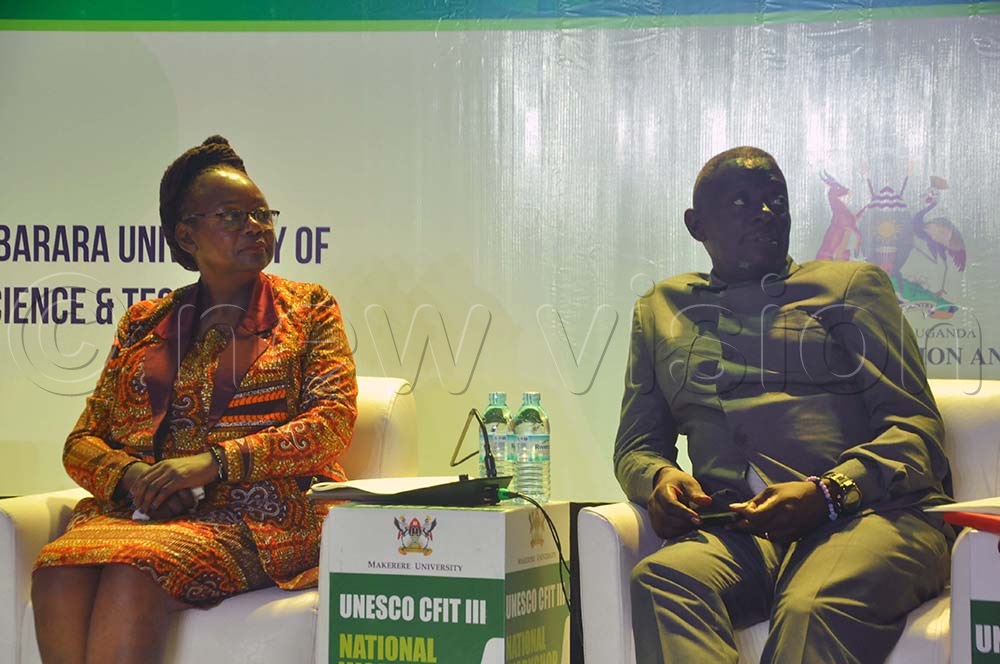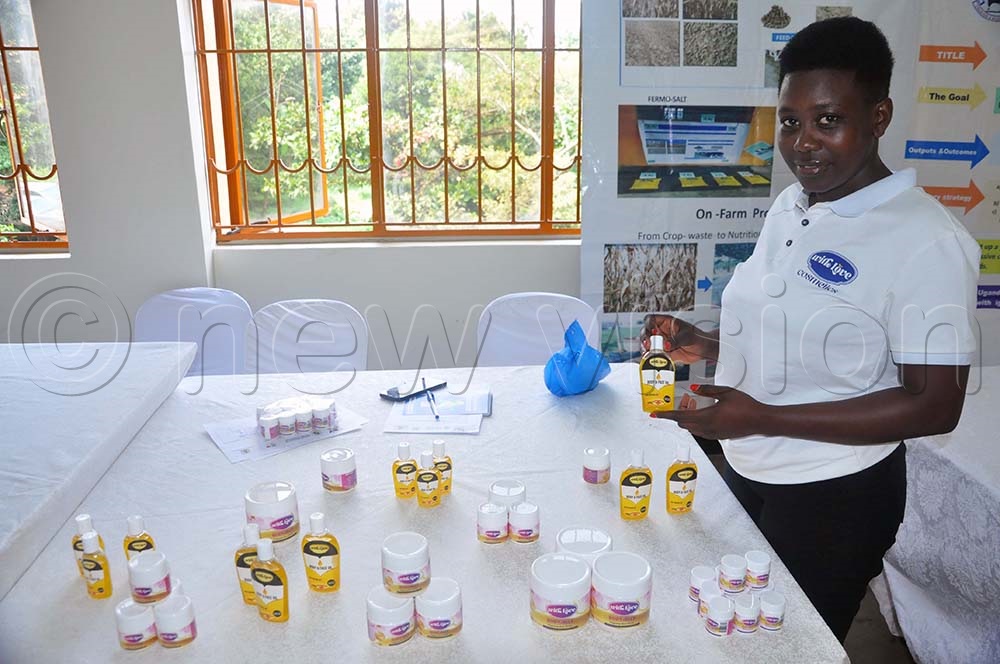Makerere, Mbarara universities reform engineering education to bridge skills gap
Okello emphasised that stronger partnerships between universities and private sector players are essential for transforming Uganda’s education system and supporting the country’s National Development Plan IV (NDP IV) goals around industrialisation and youth job creation.
Participants attending ‘Reimagining Higher Education for a Skills-Based, Innovation-Led Economy’ workshop held at the College of Engineering, Makerere University. (Credit: John Odyek)
By John Odyek
Journalists @New Vision
Makerere University and Mbarara University of Science and Technology (MUST) are signalling a major shift in engineering education, science and technology education by embracing a competence-based curriculum aimed at bridging the gap between academic learning and practical industry needs.
Academics from Makerere’s College of Engineering, Design, Art and Technology (CEDAT) and MUST say they are moving away from traditional, lecture-heavy models towards more hands-on, field-based approaches that prioritise real-world problem-solving.
The transformation is part of the China Funds-in-Trust Phase III (CFIT III) Project, implemented in partnership with UNESCO and other stakeholders.
The initiative focuses on curriculum reform, skills development, and strengthening university-industry linkages to create vibrant innovation ecosystems that respond to national and regional development needs.
Prof. Dorothy Okello, the dean of the School of Engineering at CEDAT, said that with a student body of 3,200 and 227 academic staff, the college promotes innovation and encourages students to find solutions to societal problems.
“Our key challenges include aligning graduates with labour market demands, increasing industry-academia collaboration, enhancing green skills for green jobs, and addressing the limited absorption capacity of the labour market,” Okello said.
The CFIT III initiative, which concluded with a national workshop and student exhibition on July 29, 2025, under the theme “Reimagining Higher Education for a Skills-Based, Innovation-Led Economy,” has led to several reforms.
Okello (Left), the dean of the School of Engineering, Makerere University and Ssejjoba (Right), the commissioner for university education and training at the Ministry of Education and Sports during the ‘Reimagining Higher Education for a Skills-Based, Innovation-Led Economy’ workshop held at the College of Engineering, Makerere University. (Credit: John Odyek)
At Makerere University, these include labour market analysis, graduate tracer studies, curriculum reviews across three engineering departments, and the introduction of practical short courses on ICT, communication and green skills.
The university has enhanced student internships and introduced new assessment methods to foster competency-based learning.
Okello emphasised that stronger partnerships between universities and private sector players are essential for transforming Uganda’s education system and supporting the country’s National Development Plan IV (NDP IV) goals around industrialisation and youth job creation.
“University-industry-government linkages are crucial for commercialising research, incubating start-ups, scaling innovations, and enhancing national competitiveness,” she said.
Makerere University vice chancellor, Prof. Barnabas Nawangwe, noted that Uganda must modernise its engineering training, which still mirrors outdated methods from the 1950s.
“Our engineers should graduate with a project, idea, or innovation. China has become the factory of the world because of innovations emerging from its universities,” Nawangwe said.
He added that Makerere has the potential to produce 50 new companies annually, creating jobs and contributing to Uganda’s economic and political stability through engineering-led industrialisation.
Dr Halid Kirunda, the director of research at the National Agricultural Research Organisation, highlighted the pressing challenge of youth unemployment, which stands at over 60%, despite Uganda producing over 700,000 graduates each year against only 90,000 formal job openings.
“There is a growing mismatch between what universities teach and what the labour market needs. Over 87% of graduates struggle to find employment because many lack the technical, entrepreneurial, and soft skills that today’s industries demand,” Kirunda said.

Raphaelina Okoth a student from Mbarara University of Science and Technology (MUST) exhibiting cosmetics made from ghee during the ‘Reimagining Higher Education for a Skills-Based, Innovation-Led Economy’ workshop and exhibition held at the College of Engineering, Makerere University. (Credit: John Odyek)
“We must move from asking ‘what did you study?’ to ‘what can you do?’”
Kirunda advocated for the Competence-Based Education and Training (CBET) framework, which shifts focus from academic credentials to demonstrable abilities.
He urged that universities must become launchpads for enterprise and innovation, not just knowledge repositories.
Prof. Nixon Kamukama, the deputy vice chancellor for academic affairs at MUST, stressed the need to replace rote note-taking with practical training.
“Students must gain hands-on skills that empower them to start their own projects. We must take lecture rooms to industries or bring industries into lecture rooms,” Kamukama said.
Rosemary Nasaba from UNESCO emphasised the importance of retooling lecturers for the successful implementation of the competence-based model.
“We need educators who can train students not just to learn, but to apply skills meaningfully in the real world,” Nasaba said.
Timothy Ssejjoba, the commissioner for university education and training at the Ministry of Education and Sports, underscored the role of labour market analysis in curriculum reform.
“Our curricula must reflect actual job market needs. Institutions must become proactive in aligning education with economic goals,” Ssejjoba said.
Dr Medard Twinamatsiko Katonera, the director of innovation and technology transfer at MUST, said the university has revised six curricula between 2022 and 2025 to align with competency-based training.
They introduced six micro-credential short courses in fields such as youth entrepreneurship, bio-organic farming, herbal medicine, and digital innovation.
“We are in the process of certifying these courses with the Uganda Vocational and Technical Assessment Board (UVTAB),” Katonera noted.
He added that the university has supported 10 agro-biotech start-ups and hosted six innovation exhibitions where industry and academia signed collaboration agreements.
